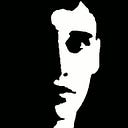The purpose of life is to participate in evolution through action
The statement from the title of this post is the result of combining several ideas which I present below. This is still a very vague statement (in which the words “evolution” and “action” could and should be interpreted liberally), but it seems at least a little less vague than some statements on the purpose or the meaning of life proposed by philosophers in the past.
Most conceptions of meaning and value could be cast in terms of evolution
One of the possible formulations of the meaning of life in Christianity and Judaism is the evolution of the soul: getting rid of sin. Salvation could be seen as an evolutionary transition (in biology, this means the emergence of a new level of organization). Reincarnation is also reminiscent of the soul’s evolution.
“Making the world a better place”, a popular utilitarian conception of the meaning of life could be seen as a contribution to the evolution of the “world”. By the “world”, the believer means either the world’s economy, or the world’s society, or the biosphere, or some combination thereof.
Evolution can be seen as multilevel learning
See the paper “Towards a Theory of Evolution as Multilevel Learning” by Vanchurin, Wolf, Katsnelson, and Koonin:
We apply the theory of learning to physically renormalizable systems in an attempt to develop a theory of biological evolution, including the origin of life, as multilevel learning. We formulate seven fundamental principles of evolution that appear to be necessary and sufficient to render a universe observable and show that they entail the major features of biological evolution, including replication and natural selection. These principles also follow naturally from the theory of learning. We formulate the theory of evolution using the mathematical framework of neural networks, which provides for detailed analysis of evolutionary phenomena.
Find the meaning of life through action
A lot of philosophers, spiritual teachers, and psychologists adopt this idea.
Viktor Frankl, Man’s Search for Meaning:
What was really needed was a fundamental change in our attitude toward life. We had to learn ourselves and, furthermore, we had to teach the despairing men, that it did not really matter what we expected from life, but rather what life expected from us. We needed to stop asking about the meaning of life, and instead to think of ourselves as those who were being questioned by life — daily and hourly. Our answer must consist, not in talk and meditation, but in right action and in right conduct.
Johann Wolfgang von Goethe, Maxims and Reflections:
How can a man come to know himself? Never by thinking, but by doing. Try to do your duty and you will know at once what you are worth.
Phil Stutz and Barry Michels, The Tools:
A sense of purpose doesn’t come from thinking about it. It comes from taking the action that moves you toward the future. This enables a force of forward motion.
Learn by moving (and through action)
Learning by moving is one of the attributes of general intelligence, per Jeff Hawkins:
We cannot sense everything around us at once. We have to move to build up a mental model of things, even if it’s only moving our eyes or hands. This is called embodiment.
Toddlers learn about the world by crawling and trying to grab and eat everything around them. Adult humans also need a constant influx of new experiences (challenges, problems) to fuel their learning process (evolution). These experiences, challenges, and problems are not necessarily external and visible. They might be “internal”: psychological or spiritual. See The Interface Theory of Perception by Donald Hoffman for more on this:
Action and movement are rough synonyms, in this context.
Once a person acquired a lot of experiences (solved many problems, overcame many challenges, etc.), they can learn better values from them. Values and meaning are patterns discovered in one’s manifest image (i. e., learned) as well as colours or the laws of physics. See From Bacteria to Bach and Back by Daniel Dennett for more on this.
This post was first published on Substack.
